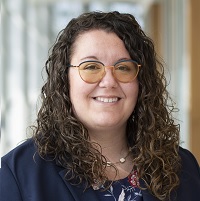Beginning Research in Engineering Education: Designing Quantitative and Qualitative Studies is designed to provide engineering or technology instructors and administrators with the knowledge and tools to design qualitative and quantitative research studies that can answer meaningful questions related to engineering education.
Type: Instructor-Led Course
Delivery Method: Live Online
Level: Foundational, Intermediate
Duration: 4 hours
Pricing
ASEE Member: $250
Non-member: $350
Groups of 5+ receive 10% off
Email us to register a group!
Overview
Beginning Research in Engineering Education: Designing Quantitative and Qualitative Studies is an instructor-led online workshop intended for those who are interested in learning how to design research studies that can answer meaningful questions related to engineering education. The workshop will introduce quantitative and qualitative research methods and provides participants with heuristics for choosing the most appropriate methods for answering their questions. This workshop is tailored for those who aim to enhance their comprehension, application, and creation of effective research designs tailored to address relevant inquiries within their respective fields.
During this workshop, participants will learn how the process of scientific reasoning applies to educational research using a pragmatic approach. The instructors will unpack the process of designing an educational study, beginning with articulating one’s desired claims, reviewing relevant literature and educational theory, and aligning these to determine and implement the most effective research method. Rather than approaching qualitative and quantitative methods as dichotomies with competing paradigms, this workshop provides a framework for participants to critically consider the affordances and constraints of each method. By the end of this workshop, participants will have the knowledge and tools for conceptualizing and implementing a sound and rigorous research plan that provides valuable insights into their areas of study.
This workshop takes place in one single 4-hour (240 minutes) instructor-led session. Throughout the workshop, there will be numerous opportunities to interact with the facilitators and other participants, with ample time provided for questions, discussion, and feedback.
How You Will Benefit
- You’ll learn to write effective research questions that will enhance outputs and can be answered through qualitative or quantitative research methods.
- You’ll learn how to select quantitative and qualitative research methods aligned to specific research questions, resulting in more impactful and meaningful findings.
- You’ll receive feedback from experts directly related to your research design.
- You’ll receive resources to reference after the workshop for designing future studies.
Intended Audience
This workshop is intended for engineering or technology instructors or administrators who are interested in engaging in engineering education research.
Learning Outcomes
By the end of this workshop, you will be able to:
- Implement scientific reasoning to design an educational research study.
- Develop research questions that can be answered through qualitative or quantitative research methods.
- Select the quantitative and qualitative research methods aligned to specific research questions.
- Evaluate the appropriateness of analytical approaches for answering posed research questions.
 Cassandra McCall, Ph.D.
Cassandra McCall, Ph.D.
Assistant Professor, Engineering Education Department
Utah State University
Cassandra McCall, Ph.D. is an Assistant Professor in the Engineering Education Department at Utah State University. In her research, Dr. McCall seeks to understand how dominant engineering and academic cultures and discourses influence disability and professional identity formation to create more inclusive learning spaces for students from minoritized groups. She has extensive research experience with qualitative methodologies including grounded theory, phenomenology, phenomenography, and auto-ethnography. Dr. McCall has written and co-authored several methods-based publications including New Perspectives for Implementing Grounded Theory and Introduction to Grounded Theory: Choosing and Implementing an Emergent Method. She has bachelor’s and master’s degrees in Civil Engineering from the South Dakota School of Mines and Technology and a PhD in Engineering Education from Virginia Tech.

Kerrie Douglas, Ph.D.
Associate Professor of Engineering Education
Perdue University
Kerrie Douglas, Ph.D. is an Associate Professor of Engineering Education at Purdue University. She holds a PhD in Educational Psychology and Masters of Science in Education from Purdue. She is the lead of the Science and Ethics for Educational Data (SEED) lab. Her research is focused on improving methods of evaluation and assessment in large-scale engineering learning contexts. She works on problems of validity, equity and how to make inferences about diverse groups of learners. She has been Primary Investigator or Co-PI on more than $24 million of external research awards. In 2020, she received an NSF RAPID award to study engineering instructional decisions and how students were supported during the time of emergency remote instruction due to the COVID-19 pandemic. Since May of 2020, she’s been invited to speak at 14 national and international events about how to support and assess students in online learning environments. In 2021, she received the NSF Early CAREER award to study improving the fairness of assessment in engineering classrooms.
Requirements and Resources
Pre-Work: Prior to the workshop, you will be expected to watch two brief (~15 minute) pre-recorded videos and complete a brief worksheet (2 pages) that will prepare you for the workshop by introducing you to fundamental concepts for approaching engineering education research and preparing you to discuss your research ideas during the workshop.
Supplemental Resources: You will be provided with (1) a participant guide, (2) presentation slides, and (3) workshop recordings.
Attendance and Completion
Full and active participation will enhance the learning experience for all participants. At the end of the workshop, you will receive a certificate of completion via email. Professional development hours (PDH) will be provided upon request.
Terms and Policies
• Cancellation Policy
• Recording and Privacy Policy
If you have questions, please contact learning@asee.org.

